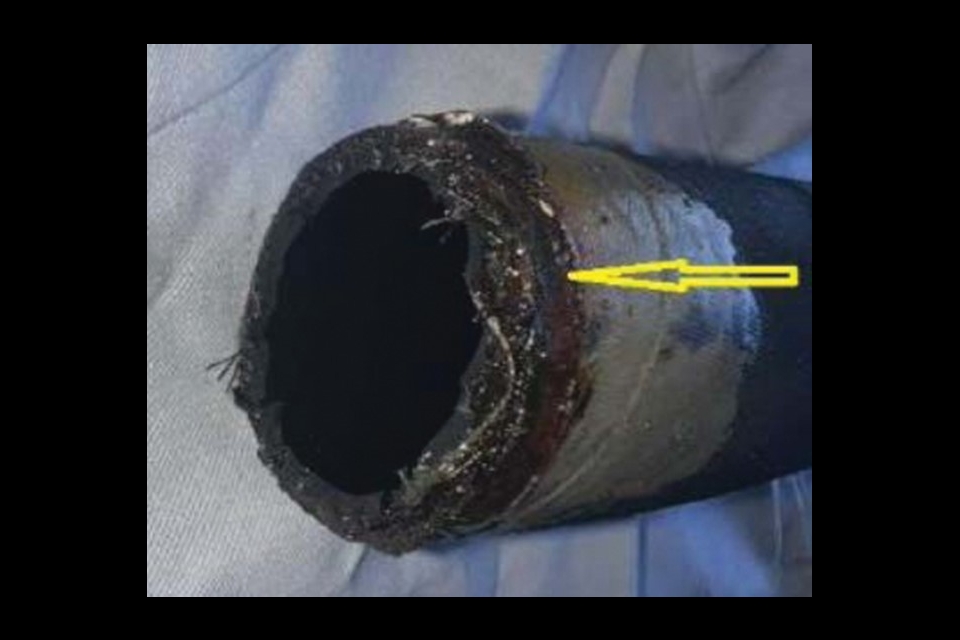A hidden defect in a hydraulic hose of a vessel’s hose handling crane resulted in a minor oil leak. In its latest Mars Report, The Nautical Insitute warns to deal with such leaks immediately as they pose a safety and pollution risk.
The Nautical Institute gathers reports of maritime accidents and near-misses. It then publishes these so-called Mars Reports (anonymously) to prevent other accidents from happening. A summary of this incident:
A tanker had just finished discharging and crew were preparing for departure. The portable gangway that had been secured on the dock was to be retrieved using the vessel’s hose handling crane.
As work progressed, the crew spotted a minor leak from one of the hydraulic hoses of the crane and interrupted the operation. The hydraulic hose was replaced and appropriate tests were carried out. Once the crew were satisfied of the operational integrity of the crane, the portable gangway was retrieved and the vessel subsequently sailed without further delay.
Although the failed hose was a genuine part and was within the usable time frame, a hidden defect in the hose had escaped detection until the leak appeared.
Also read: Oil leakage leeds to better storage of reducers on board tanker
Advice from The Nautical Institute
- If a flexible hydraulic hose leaks during an operation, never hesitate to suspend the work. Identify and correct the cause of the leakage before a drip becomes a deluge.
- Defects or damage to high-pressure flexible hydraulic hoses present a safety and pollution risk and should immediately be addressed.
- All parts of cranes, including the hydraulic pipes and hoses, must be thoroughly and effectively inspected.
Also read: Uninspected engine modifications result in fire
Mars Reports
This accident was covered in the Mars Reports, originally published as Mars 202403, that are part of Report Number 375. A selection of the Mars Reports are also published in the SWZ|Maritime magazine. The Nautical Institute compiles these reports to help prevent maritime accidents. That is why they are also published (in full) on SWZ|Maritime’s website.
More reports are needed to keep the scheme interesting and informative. All reports are read only by the Mars coordinator and are treated in the strictest confidence. To submit a report, please use the Mars report form.
Also read: Smoke but no fire, yet indications of weak safety culture on LNG vessel








